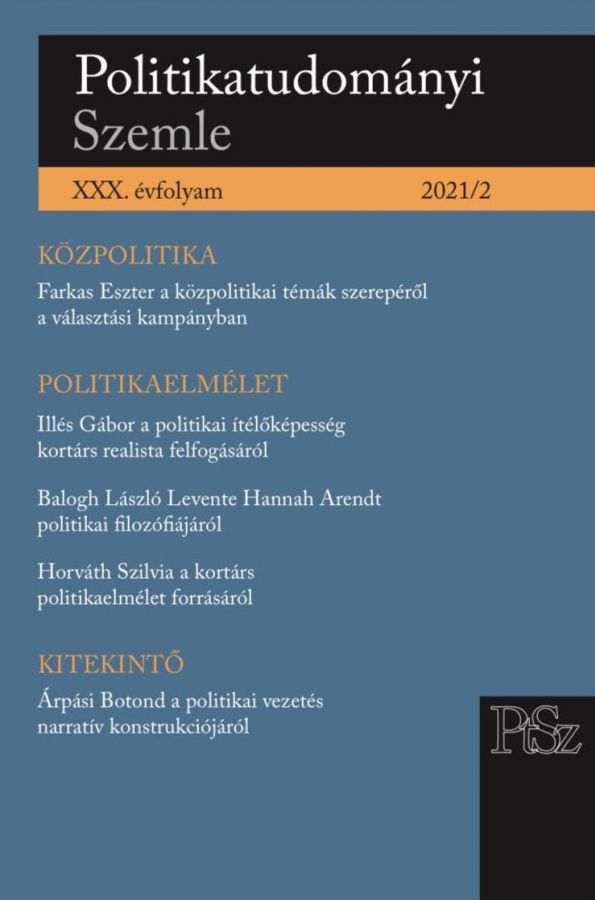A klasszikus eszméje: A kortárs politikaelmélet egyik forrásáról
The Idea of the Classical: On a Source of Contemporary Political Theory
Author(s): Szilvia HorváthSubject(s): Political Philosophy
Published by: MTA Politikai Tudományi Intézete
Keywords: contemporary political philosophy; classical democracy; the concept of politics; Hannah Arendt; neo-Aristotelian political theory
Summary/Abstract: In the course of the history of political thought, there is a return to classical sources from time to time – and this is true of contemporary political theory as well. The case can be labeled as neo-classical political philosophy when the classical is the primary form of theorization and not just a simple illustration. The classical has a specific meaning here, and thus, deserves our attention. The meaning, function, and possibilities, as well as limitations, explore the method- like specificities of the classical. Although neo-classical political theory turns to a (certain) past, it is nonetheless a way of contemporary thinking, which, being open to both past and present, encompasses various directions of thought. My argument in the following analysis is that the main function of the classical is to open up new possibilities and opportunities; thus, a sort of theoretical invention. Besides invention, the meanings of the classical disclose more traditional meanings, or rather, emotions, like familiarity, and a sense of certainty that stand close to the eternal in the thinkers’ imagination. The self-reflective task of the classical is to balance these two directions to maintain the conditions for neo-classical theorization in the future, and eventually, to support the conditions for open-ended and free thought.
Journal: Politikatudományi Szemle
- Issue Year: XXX/2021
- Issue No: 2
- Page Range: 65-83
- Page Count: 19
- Language: Hungarian

